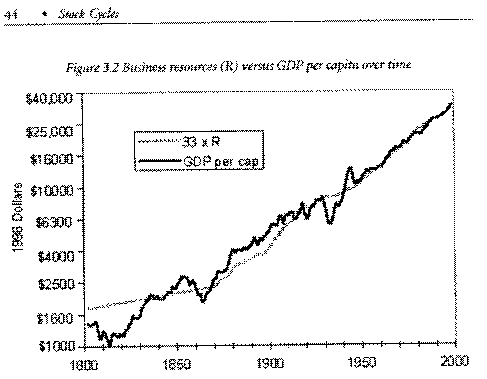Generational Crashes
Posted: Fri Oct 03, 2008 1:24 pm
John has speculated that there is a recurring cycle of worldwide crashes, pointing to the 1637 Tulip mania crash, the 1720 South Sea Company crash, the 1789 French Monarchy bankruptcy, 1857 panic, and 1929 crash as the most recent examples. You'll notice that it isn't until 1789 (1857 for the United States) that the generational crashes are aligned with the fourth turning. I inquired about this a couple years ago, and it was put forth that there is a collective remembrance of "generational crashes" which can operate independently of the saeculum.
This is certainly plausible; however, it begs the question (I think it was first posed by Mike Alexander) as to why "collective remembrance" applies to some recessions/depression, and not others. Could it be that the downturns are far more severe in generational crashes than in non-generational ones? While there is some rough correlation, it's far from convincing. What makes the 1857 panic a generational crash when compared to the far worse (and far longer) downturns of 1837, 1873, and 1893? Is it the rapidity of the panic? While 1857 was lightning-quick, so was 1837 and 1893 (1873 was centered in Europe but spread to the U.S.). Speculative bubbles? I see no difference. Shady criminal activity? There needs to be more research on this to determine any kind of correlation, but it wouldn't make a major difference from a public consciousness perspective -- far less than crash severity. Political fallout? The only major direct policy implementation that I'm aware of is the relatively bipartisan reduction of the tariff rate. Financial restructuring was greater for other panics.
So, without any empirical evidence to separate 1857 from the various other 19th century banking panics, I propose an alternate interpretation. My tentative theory is that the fairly recent alignment of financial panics and fourth turnings has, in effect, made them one. "Collective remembrance" has become same for finance as it is for war and all the other nasty side-effects of the fourth turning. The generational cycle and the economic cycle are no longer separate. In creating the 1924 (or 1927) bubble, 1857 wasn't 'generationally forgotten' per se, but the Civil War was.
One last thing. Looking at the discrepancy between the severity of crashes, it would appear that with proper policy (both long-term and short-), the intensity of a generational crash can be greatly alleviated.
This is certainly plausible; however, it begs the question (I think it was first posed by Mike Alexander) as to why "collective remembrance" applies to some recessions/depression, and not others. Could it be that the downturns are far more severe in generational crashes than in non-generational ones? While there is some rough correlation, it's far from convincing. What makes the 1857 panic a generational crash when compared to the far worse (and far longer) downturns of 1837, 1873, and 1893? Is it the rapidity of the panic? While 1857 was lightning-quick, so was 1837 and 1893 (1873 was centered in Europe but spread to the U.S.). Speculative bubbles? I see no difference. Shady criminal activity? There needs to be more research on this to determine any kind of correlation, but it wouldn't make a major difference from a public consciousness perspective -- far less than crash severity. Political fallout? The only major direct policy implementation that I'm aware of is the relatively bipartisan reduction of the tariff rate. Financial restructuring was greater for other panics.
So, without any empirical evidence to separate 1857 from the various other 19th century banking panics, I propose an alternate interpretation. My tentative theory is that the fairly recent alignment of financial panics and fourth turnings has, in effect, made them one. "Collective remembrance" has become same for finance as it is for war and all the other nasty side-effects of the fourth turning. The generational cycle and the economic cycle are no longer separate. In creating the 1924 (or 1927) bubble, 1857 wasn't 'generationally forgotten' per se, but the Civil War was.
One last thing. Looking at the discrepancy between the severity of crashes, it would appear that with proper policy (both long-term and short-), the intensity of a generational crash can be greatly alleviated.
